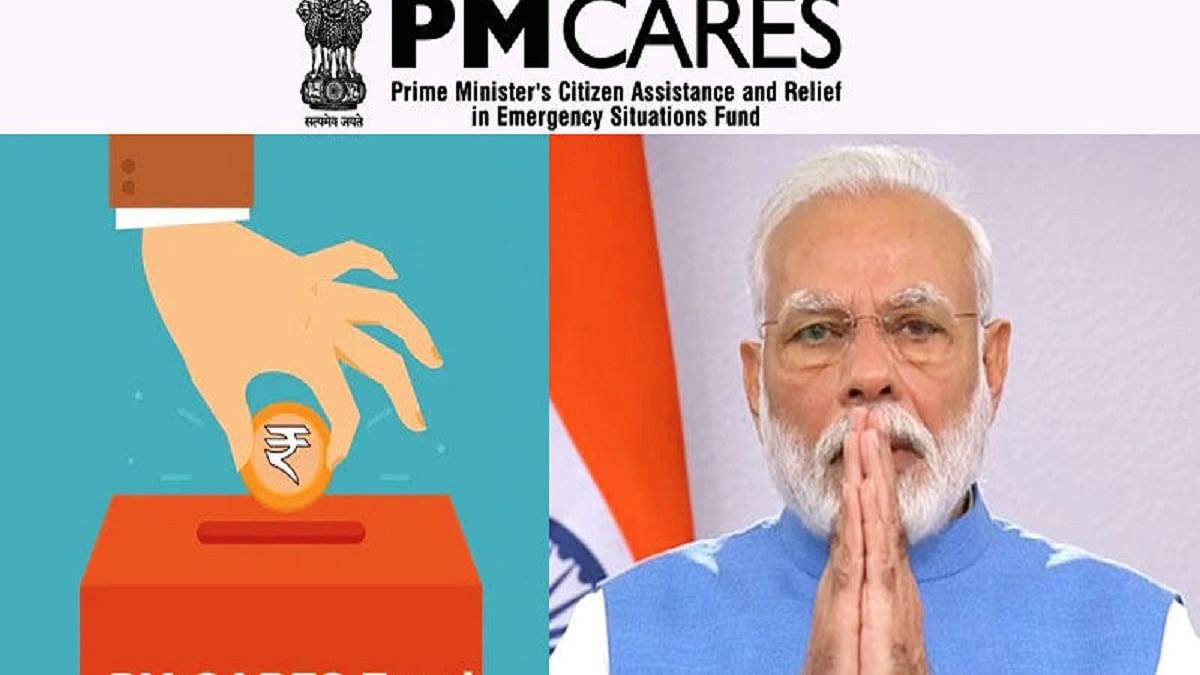Highlights:
- Documents from RTI causes contradiction on PM-CARES Fund
- An activist shared information of PM-CARES Fund
- The big question which was raised was “If the Fund was not set up by the central government, why are the PM and three Ministers serving as Trustees?”
Some serious questions were raised on PM-CARES Fund recently one of which is the PM-CARES Fund private or government? PM-CARES Fund was set up to combat COVID-19 and while it has been defined as a government trust for the purposes of corporate donations, a specific clause in the trust documents calls it a private entity which gives it immunity from the Righ To Information (RTI) scrutiny.
The PM-CARES trust was registered with the revenue department of Delhi and the Prime Minister of India, Narendra Modi, was appointed as the chairperson while other senior ministers were appointed as its trustees.
However, the trust deed which was made public recently on the fund’s website failed to define it as a government trust.
The point 5.3 of the Trust Deed sais “The trust is neither intended to be or is in fact owned, controlled or substantially financed by any government or any instrumentality of the government. There is no control of either the central government or any state governments, either direct or indirect, in the functioning of the trust in any manner whatsoever.”
PM-CARES Fund which stands for Prime Minister’s Citizen Assistance and Relief in Emergency Situations Fund was set up by Prime Minister of India, Narendra Modi, in March to combat the “emergency or distress situations like the coronavirus pandemic”.
PM-CARES Fund was registered on the 27th March this year and on the 28th of March, the very next day of its registration, the Ministry of Corporate Affairs issued an office memorandum which qualified the newly registered PM-CARES as a Corporate Social Responsibility (CSR) initiative which can receive corporate donations.
Eligibility for the corporate donations, as defined in the Companies Act says, “Contribution to the Prime Minister’s National Relief Fund or any other fund set up by the Central Government or the State Governments for socio-economic development and relief and funds for the welfare of the Scheduled Castes, the Scheduled Tribes, other backward classes, minorities and women.”
As per the documents which were accessed by Anjali Bhardwaj, an activist, via RTI query, revealed that the Ministry of Corporate Affairs, while issuing the Office Memorandum dated 28th March 2020, defined PM-CARES Fund as a “fund set up by the central government”.
However, as per the trust deed from a day before, PM-CARES Fund is not a government-run fund which means that PM-CARES Fund could not have been eligible for corporate donations.
This contradiction continued for another 2 months and it was only on the 26th of May that the Ministry of Corporate Affairs added PM-CARES Fund to the Companies Act with hindsight from March 28.
For almost 2 months, PM-CARES Fund remained a private entity and kept receiving Corporate donations.
Former Finance Minister of India and senior Congress leader P Chidambaram in a tweet, back in August 20 raised the question: “If the Fund is a private established fund, why are donations to the fund counted against CSR?”
If the Fund was not set up by the central government, why are the PM and three Ministers serving as Trustees? Who appointed them as Trustees?
— P. Chidambaram (@PChidambaram_IN) August 20, 2020
If the Fund is a private established fund, why are donations to the Fund counted against CSR?


